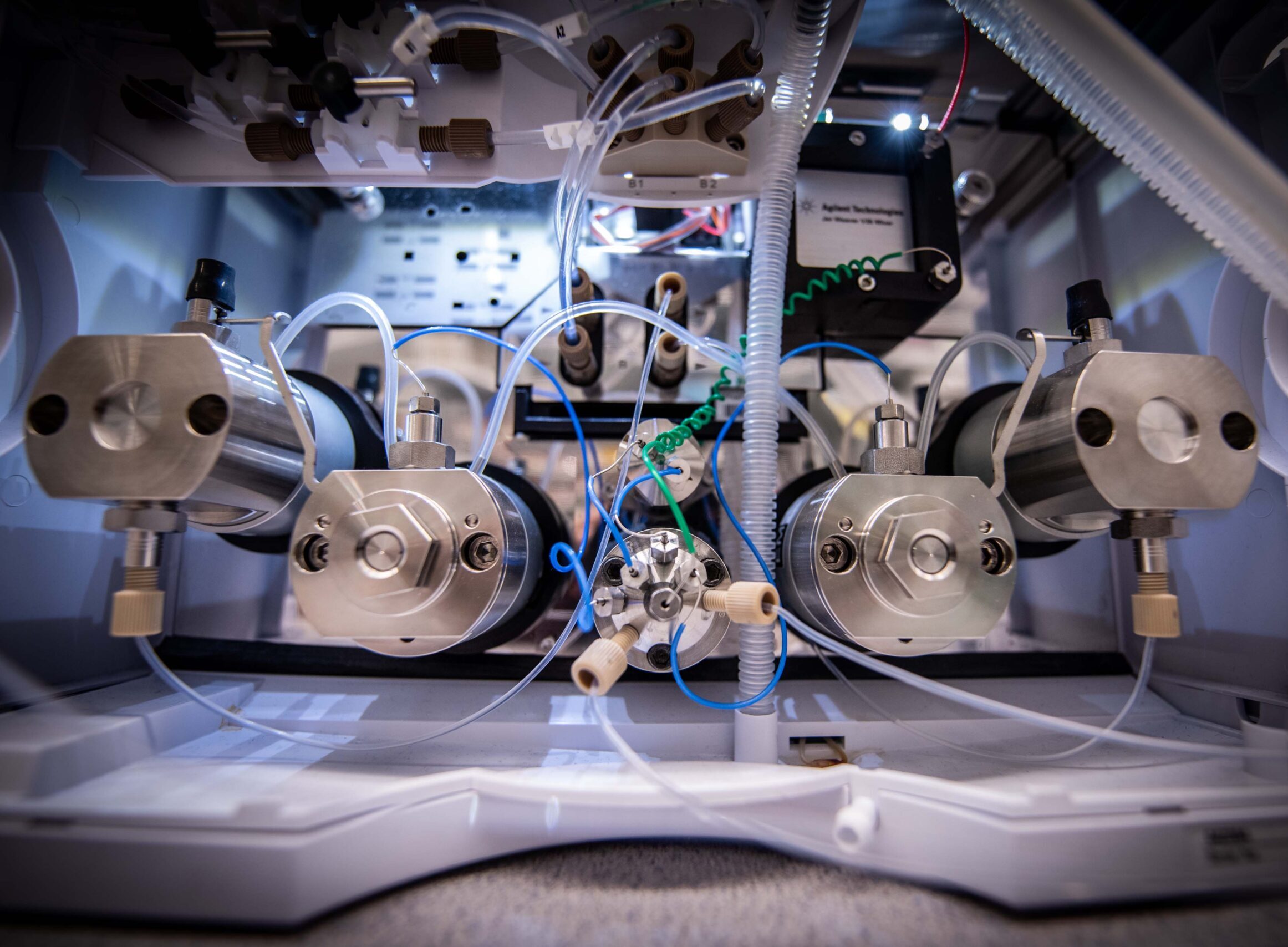The 88-Inch Cyclotron is home to the Berkeley Accelerator Space Effects (BASE) Facility, which provides well-characterized particle beams that simulate the space environment, used to study how radiation affects microelectronics, optics, materials, and cells.
The AQT is a state-of-the-art collaborative research laboratory to advance quantum information science and technology based on superconducting circuits. The AQT operates an open-access quantum computing platform for deep collaboration with external users.
An advanced building and grid technologies testbed, FLEXLAB® can help researchers, builders, architects, and agencies test building systems, including HVAC, lighting, windows, envelope, control systems, and plug loads in pursuit of energy savings.
BELLA uses ultrafast, intense lasers to support research in new, smaller particle accelerators, precision penetrating measurements, and material processing to advance fundamental science and to bring new capabilities to industry and medicine.
The ABPDU at Berkeley Lab advances the national bioeconomy by expediting the commercialization of advanced, next-generation biofuels and bioproducts, providing industry-scale testbeds to companies, agencies, and research institutions.
The GMF builds, tests, and deploys customized instrumentation and data acquisition and telemetry solutions — often for harsh research environments and remote locations — to answer specific research questions that address critical Earth, energy, and environmental challenges.
Dedicated to clean and affordable water supplies, NAWI is a community of researchers in industry, academia, and national labs, alongside stakeholders in federal, state, and local governments, water users, entrepreneurs, investors, advocacy groups, and individuals.
The ABF is a consortium of national laboratories dedicated to accelerating biomanufacturing and decarbonizing the economy. The ABF collaborates with industry and academia to innovate the development of bio-based products and tools for bioengineering.
The JBEI, a DOE Bioenergy Research Center led by Berkeley Lab, conducts basic science in synthetic biology, agronomy, and advanced analytics to develop sustainable technologies that efficiently transform bioenergy crops into carbon-neutral biofuels and bioproducts.
The CXRO uses short wavelength optical systems and techniques to support research in materials, life, and environmental sciences and extend the forefront of semiconductor manufacturing.
KBase is a free, open-source, easy-to-use data science platform that accelerates discovery by enabling researchers to upload multi-omics data, conduct complex systems biology analyses using shared data, and publish reproducible conclusions.
The NMDC connects data, people, and ideas to advance microbiome innovation in the environmental sciences by creating data infrastructure initiatives that support open science, building consensus around data standards and supporting the multi-omic research community.
The Material Project accelerates materials discovery through its comprehensive database of materials properties generated through advanced simulations. The resource is used by more than 250,000 registered users worldwide, requesting millions of data records every day.
ESS-DIVE is a digital data repository where scientists can store, manage, and share environmental data related to the DOE’s research for users around the world.
The GO Knowledgebase is the world’s largest source of information on gene functions. Both human- and machine-readable, this knowledge is foundational for computational analysis of large-scale molecular biology and genetics experiments in biomedical research.
The Particle Data Group is an international collaboration that provides a comprehensive summary of particle physics and related areas of cosmology: the Review of Particle Physics.
Berkeley Lab supports AmeriFlux Network sites to ensure the quality and availability of continuous, long-term ecosystem measurements of how fluxes of water vapor, energy, and carbon dioxide are exchanged between the biosphere and atmosphere.
Our Indoor Environment Group evaluates technologies and systems designed to provide clean air in buildings. We measure air quality parameters, conduct controlled experiments in situ and at FLEXLAB®, and apply airflow and pollutant transport models.
CAMERA is an integrated, cross-disciplinary center that invents, develops, and delivers the fundamental new mathematics required to help scientists capitalize on experimental investigations at scientific facilities.


The National Alliance for Water Innovation (NAWI), which is led by the Department of Energy’s (DOE) Berkeley Lab, has been extended for five more years with $75 million in funding from DOE. NAWI will continue its contributions to helping decarbonize the water and wastewater sectors through investments in technologies that enhance the efficient use of energy for water use, treatment, and distribution.
